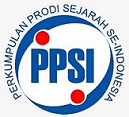TRADISI MANDHASIYA DESA PANCOT DAN POTENSINYA SEBAGAI DAYA TARIK WISATA KABUPATEN KARANGANYAR
Abstract
Abstract
The Mandhasiya tradition is a village clean tradition carried out by the people of Pancot Village, Tawangmangu District, Karanganyar Regency. This tradition has an important role in the realization of social cohesion between communities. The purpose of this study is to explain the identity and history of Pancot Village, to describe the procession of implementing the Mandhasiya tradition, and to provide an overview of the attractiveness of cultural tourism. The method of this research used a descriptive qualitative method. The data of this research was obtained through literature study and in-depth interview. Data analysis was performed by data reduction and data presentation. The results showed that the history of Pancot Village originated from the story of the defeat of Prabu Baka by Putut Tetuka. This tradition is carried out every seven months on Tuesday Kliwon wuku Mandhasiya. The procession of implementing the Mandhasiya tradition has two stages, namely the pre-ceremony and the implementation of the ceremony. The attractiveness of this traditional tourism lies in the aspects of attractions, amenities, accessibility and activities. Based on the SWOT analysis, this tradition deserves to be used as one of the cultural tourism objects in Karanganyar Regency.
Keywords: Mandhasiya Tradition, Pancot Village, Tourist Attraction
Full Text:
PDFReferences
Anggoro, B. (2019). “Mystical Mysteries Mandhasiya” Tradistion and Exotism Hindu Heritage Ceremony . International Journal of Multicultural and Multireligious Understanding, 71-79.
Bagus, I. G. (2016). Pengantar Industri Pariwisata. Yogyakarta: Deepublish.
Bayu, A. (2019). "Mystical Mysteries Mandhasiya" Tradition and Exotism Hindu Heritage Ceremony. International Journal of Multicultural and Multireligious Understanding, 72-77.
BPS. (2010). Kwarganegaraan Suku Bangsa Agama dan Bahasa. Jakarta: www.bps.go.id.
Danandjaja, J. (1997). Foklor Indoesia. Jakarta: PT Midas Grafindo.
Diskominfo. (2017). Profil Kecamatan Tawangmangu. Karanganyar: Dinas Komunikasi dan informatika.
Disporapar. (2015). Daya Tarik Wisata. Jawa Tengah: www.disporapar.jaengprov.go.id.
Hermianto, d. (2013). Ecoliteracy Masyarakat Rawan Bencana Melalui Mitos Prabu Boko di Kecamatan Tawangmangu, Kabupaten Karanganyar, Jawa Tengah. Forum Ilmu Sosial, 181-184.
Huberman, M. M. (2007). Analisis Data Kualitatif Buku Sumber tentang Metode-Metode Baru. Jakarta : Universitas Indonesia.
jadwalbis.com. (2020). Jadwal dan Tarif Bus Dari Solo Ke Tawangmangu. Jakarta: https://jadwalbis.com/jadwal/hasilPencarianJadwalBis/jadwal-bis-SOLO-TAWANGMANGU.
Janah, A. I. (2014). Makna Simbolik Tradisi Mondhosiyo di Dusun Pancot, Kalisoro, Tawangmangu, Karanganyar. 81.
Kemendikbud. (2020). Statistik Kebudayaan 2020. Tangerang Selatan: Pusat Data dan Informasi Kemendikbud.
Moleong, L. J. (2010). Metode Penelitian Kualitatif. Bandung: Remadja Rosdakarya.
Ningsih, S. P. (2020). Nilai-nilai Pendidikan Agama Islam Dalam Tradisi Mondosiyo Dusun Pancot, Tawangmangu, Kabupaten Karanganyar. IAIN Salatiga, 64-72.
Pamungkas, D. P. (2012). Potensi dan Pengembangan Wisata Budaya Mandhasiya Tawangmangu. Universitas Sebelas Maret, 31-41.
Priyanto, D. S. (2015). Pengembangan Potensi Desa Wisata Berbasis Budaya Tinjauan Terhadap Desa Wisata di Jawa Tengah. Vokasi Indonesia, 77.
Putu Karyana Putra, N. S. (2018). Identifikasi Komponen Daya Tarik Wisata dan Pengelolaan Pantai Labuan Sait, Desa Adat Pecatu, Kabupaten Badung. Destinasi Pariwista, 292.
Setiawan, B. (2017). Upacara Tradisional Masyarakat Lereng Gunung Lawu, Kabupaten Karanganyar, Provinsi Jawa Tengan: Suatu Wujud Interaksi Manusia dengan Alam. Patrawidya, 316.
Valeri, V. (2018). Classic Concept in Anthropology. United States: Chicago Distribution Center .
DOI: http://dx.doi.org/10.24042/jhcc.v2i2.9870
Refbacks
- There are currently no refbacks.
Copyright (c) 2021 El Tarikh : Journal of History, Culture and Islamic Civilization
Jurnal El Tarikh is the Journal of History, Culture,and Islamic Civilization (JHCC) [ISSN:2774-7999 dan e-ISSN: 2774-8723] published by Faculty of Adab, Universitas Islam Negeri Raden Intan Lampung, Indonesia in collaboration with Perkumpulan Prodi Sejarah Se-Indonesia (PPSI) and Asosiasi Program Studi Sejarah Islam Se-Indonesia (APSII)
Office: Faculty of Adab, Universitas Islam Negeri Raden Intan Lampung. Jl. Letkol H. Endro Suratmin, Sukarame, Bandar Lampung, Lampung, Indonesia, KP. 34513. Website: http://ejournal.radenintan.ac.id/index.php/eltarikh, Email: Jurnaleltarikh@radenintan.ac.id
Jurnal El Tarikh is licensed under a Creative Commons Attribution-ShareAlike 4.0 International License.







.gif)

1.png)



.jpg)